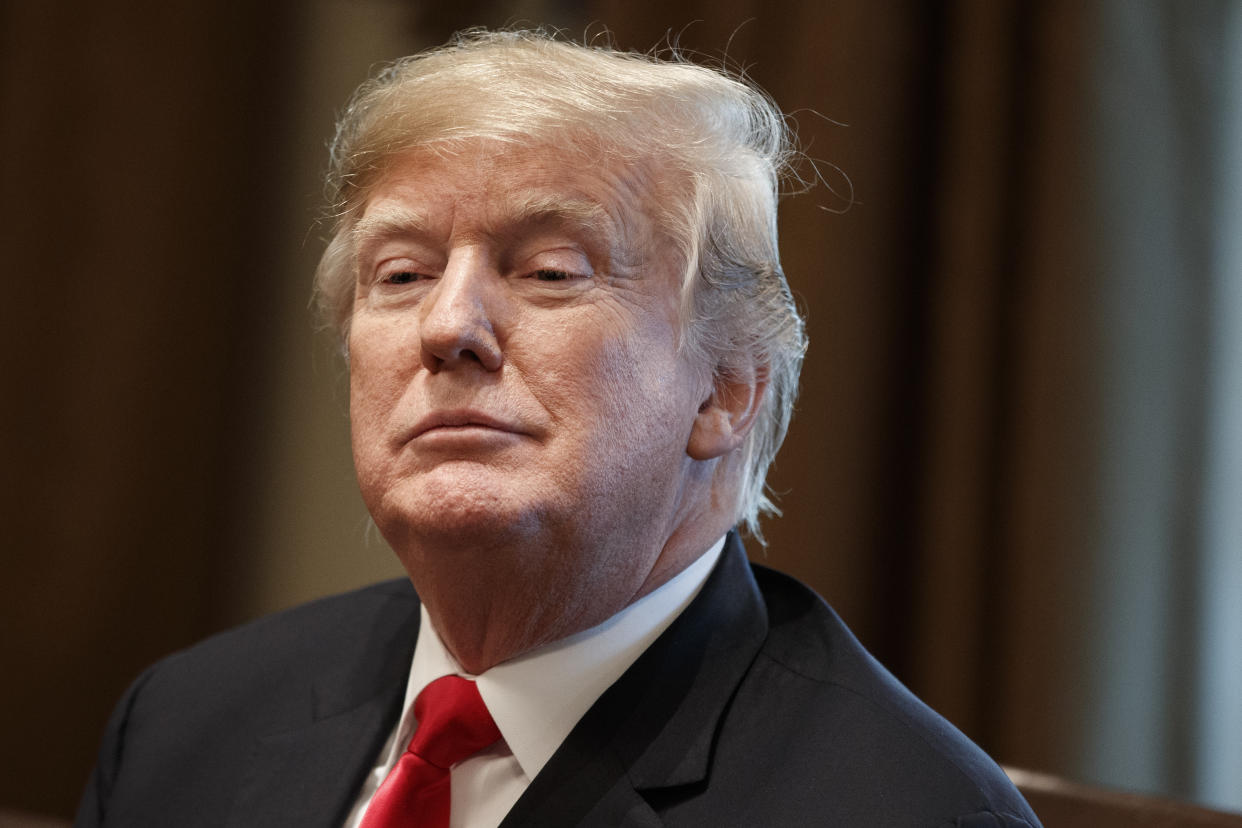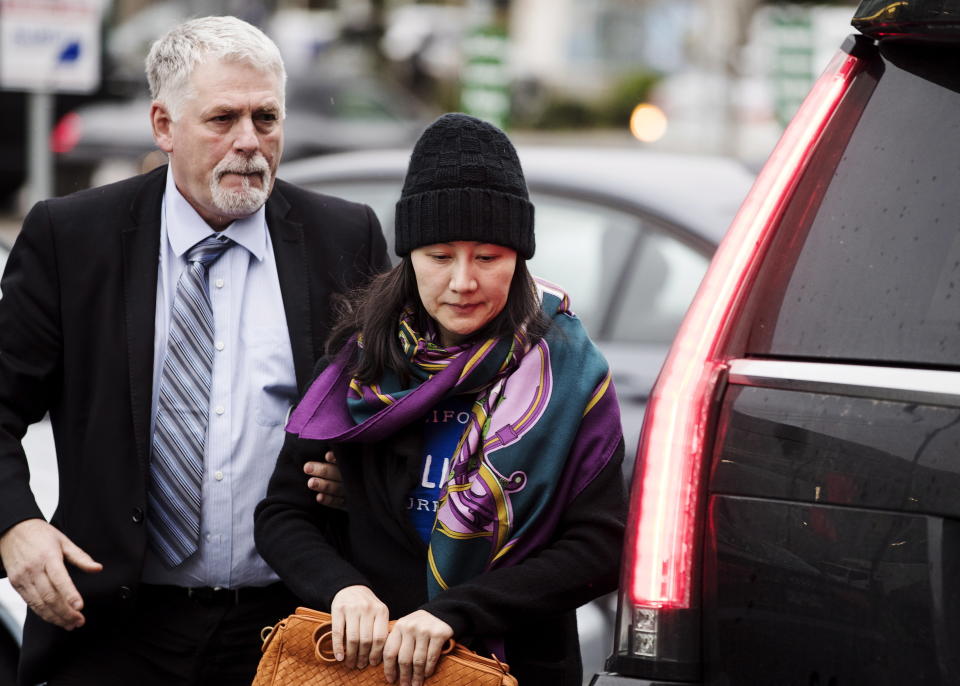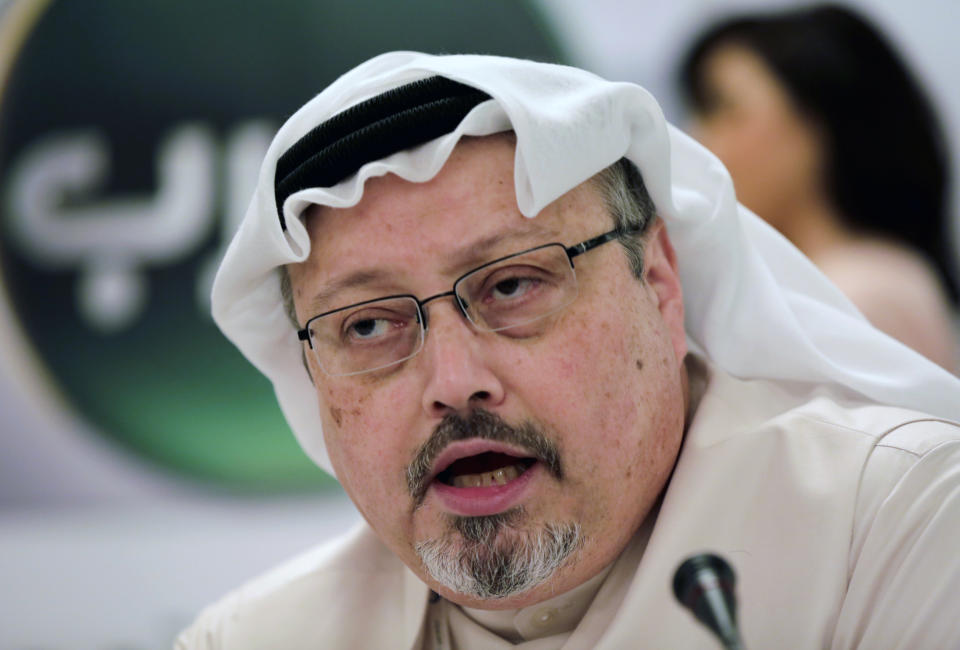Trump's foreign policy betrays American ideals, says former ethics chief

The former director of the United States Office of Government Ethics said President Trump’s recent statements on intervening in the Canadian arrest of a Chinese executive and the administration’s reluctance to punish Saudi Arabia over the killing of journalist Jamal Khashoggi are “extremely troubling.”
“It’s very disconcerting to hear him talk about being willing to intervene in another country’s criminal arrest of an individual in order to get a bargaining chip in a trade negotiation, or his willingness to ignore the brutal torture/murder of a Washington Post reporter in the hopes of selling more weapons to the murderer when he’s also doing it to increase his profits at his own private businesses,” Walter Shaub told Yahoo News. “That’s really extremely troubling because he’s also our representative to the world and he’s no longer a private businessman who can say or do horrible things on his own and have it only reflect on him.”
Asked Tuesday whether he would intervene in Canada’s arrest of Chinese executive Meng Wanzhou in order to boost the prospects of a trade deal with China, Trump said he was open to the possibility.
“If I think it’s good for what will be certainly the largest trade deal ever made — which is a very important thing — what’s good for national security — I would certainly intervene if I thought it was necessary,” Trump told Reuters.
Meng, the chief financial officer of one of China’s largest technology companies, Huawei Technologies, was arrested on Dec. 1 by Canadian authorities on a warrant from the U.S., during a layover in Vancouver.

With Trump’s trade war with Beijing negatively affecting the stock market and with the U.S. trade deficit with China hitting a record in October, the president is keen to make a deal with Chinese President Xi Jinping. Yet Meng’s company is accused of misleading multinational banks and violating U.S. sanctions on Iran, and Trump’s comment on intervening drew a rebuke from Canada’s foreign minister.
“Our extradition partners should not seek to politicize the extradition process or use it for ends other than the pursuit of justice,” Chrystia Freeland said Wednesday.
The president’s policy of elevating business transactions over broader American interests — including ethical norms of international behavior — was even more evident in his approach to the murder of Washington Post journalist Jamal Khashoggi.
Khashoggi, a Saudi subject and a U.S. resident, was killed in Turkey on orders of the Saudi crown prince, according to American intelligence agencies — a finding the president has refused to endorse.
Trump, who tends to view foreign trade as a zero-sum competition for markets, has repeatedly claimed that alienating the kingdom risked losing contracts for $110 billion in arms sales, although that figure seems grossly inflated.
“If we foolishly cancel these contracts, Russia and China would be the enormous beneficiaries — and very happy to acquire all of this newfound business,” Trump said in a statement. “It would be a wonderful gift to them directly from the United States!”

Although he served three presidents at the Office of Government Ethics, Shaub grew increasingly critical of Trump and stepped down from his position as director after seven months. He went on become the senior director of ethics at the Campaign Legal Center in 2017 and while he regularly criticizes the president, he said Trump’s recent statements on Saudi Arabia and his response to Meng’s arrest expose deep moral failings.
“I think this goes way beyond even government ethics and more to the fundamental issues of morality and the purpose of government in the first place,” Shaub said. “You don’t use the criminal law enforcement apparatus of a state or your ability to influence the criminal law enforcement apparatus of another state to gain an advantage in a business. It suggests that there’s no line he would not cross. He does not seem to understand that some things are fundamental to who we are as Americans and if we take steps inconsistent with those things we change who and what we are.”
As Trump made clear in the speech he delivered at his inauguration, his “America First” doctrine underpins all of his foreign policy moves.
“From this day forward a new vision will govern our land, from this day forward it’s going to be only America First, America First,” Trump said on Jan. 20, 2017. “Every decision on trade, on taxes, on immigration, on foreign affairs will be made to benefit American workers and American families.”
But as the episodes with Saudi Arabia and China demonstrate, Shaub said, ignoring ethical concerns results in a slippery slope that ultimately will backfire on American interests.
“Our ancestors spent a lot of years building civilization so that there would be some fundamental human rights concepts in the world, and our civilization hasn’t always lived up to that, but we’ve been better off for trying,” Shaub said. “The U.S., which for so many years was a model for the rest of the world in many ways, loses its moral authority to call anything wrong.”
_____
Read more from Yahoo News:
Trump first wanted his attorney general pick William Barr for another job: Defense lawyer
Blackwater Beef anyone? Private security company’s founder now sells a different kind of muscle
Plea deal by Russian agent Maria Butina describes 2016 influence campaign
U.S. intelligence sounds the alarm on the quantum gap with China
Where are Trump’s ’10 terrorists’ who were busted at the border?
Photos: Manhunt for Strasbourg, France, Christmas market attack suspect



